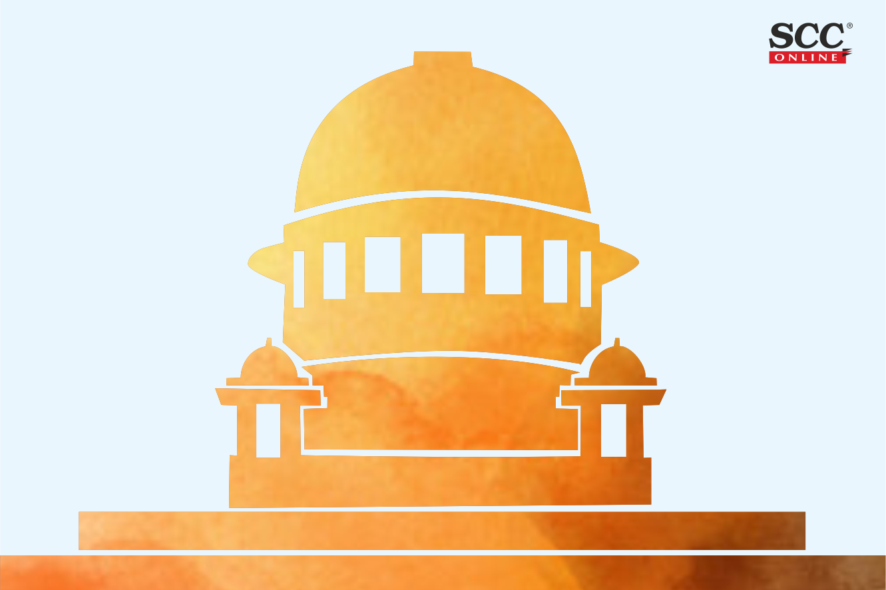Supreme Court: A Division Bench of L. Nageswara Rao and Aniruddha Bose, JJ. reversed a judgment of the Madras High Court delivered over a decade ago and held that the State Level Scrutiny Committee had no power to reopen the matter relating to the caste certificate that had been approved by the District Vigilance Committee, without an appeal being filed against such order. The Supreme Court declared that:
“Reopening of inquiry into caste certificates can be only in case they are vitiated by fraud or when they were issued without proper inquiry.”
Facts and Appeal
The appellant joined services in the Office of the Accountant General in 1985. At the time of her joining, she submitted a community certificate issued by the Tahsildar, Mylapore in which the appellant was shown to be from Valluvan community. A complaint was preferred by Dr. Ambedkar Service Association in the Office of the Accountant General raising doubts about the community certificate produced by the appellant. An inquiry was conducted by the District Vigilance Committee. On completion of inquiry, the District Vigilance Committee concluded that the appellant belonged to Valluvan community, which was a scheduled caste. This was in the year 1999.
In 2001, the appellant was promoted as Assistant Accounts Officer. In the meanwhile, another representation was submitted by Dr. Ambedkar Service Association that suitable action should be taken against the appellant for securing employment as reserved category candidate on the basis of a false caste certificate. Pursuant to this, the State Level Scrutiny Committee issued notice to the appellant and remanded the inquiry pertaining to her community certificate to the reconstituted District Vigilance Committee. On 9-4-2008, the reconstituted District Vigilance Committee passed an order cancelling the community certificate of the appellant, on finding that she belonged to Kailolan community and not to Valluvan community. Assailing the validity of that order, the appellant filed a writ petition in the High Court which was dismissed. Aggrieved, she approached the Supreme Court.
Discussion and Decision
At the outset, the Court noted that District Vigilance Committees for verification of community certificates issued to members of SC/ST were reconstituted on 6-7-2005 pursuant to the judgment of the Supreme Court in Madhuri Patil v. Commr., Tribal Development, (1994) 6 SCC 241. Government Order No. 108 dated 12-9-2007 contains guidelines issued by the Government of T.N. for the functioning of District and State Level Vigilance Committees.
Next, it was noted that the inquiry conducted by the District Vigilance Committee in the year 1999 which upheld the community certificate in favour of the appellant, was not challenged before any forum. The Court was of the view that:
“The recognition of the community certificate issued in favour of the appellant by the District Vigilance Committee having become final, the State Level Scrutiny Committee did not have jurisdiction to reopen the matter and remand for fresh consideration by the District Level Vigilance Committee.”
It was found that the guidelines issued by the Government Order in 2007 did not permit the State Level Scrutiny Committee to reopen cases which have become final. Noting that the purpose of verification of caste certificates by scrutiny committees is to avoid false and bogus claims, the Court observed that:
“Repeated inquiries for verification of caste certificates would be detrimental to the members of Scheduled Castes and Scheduled Tribes. Reopening of inquiry into caste certificates can be only in case they are vitiated by fraud or when they were issued without proper inquiry.”
In view of the conclusion that the State Level Scrutiny Committee did not have the power to reopen the matter relating to the caste certificate that was approved by the District Vigilance Committee in the year 1999 without any appeal filed against that order, the Supreme Court allowed the instant appeal and reversed the impugned judgment of the High Court, and quashed the order of the reconstituted District Vigilance Committee passed on 9-4-2008. [J. Chitra v. State Level Vigilance Committee, 2021 SCC OnLine SC 654, decided on 2-9-2021]







